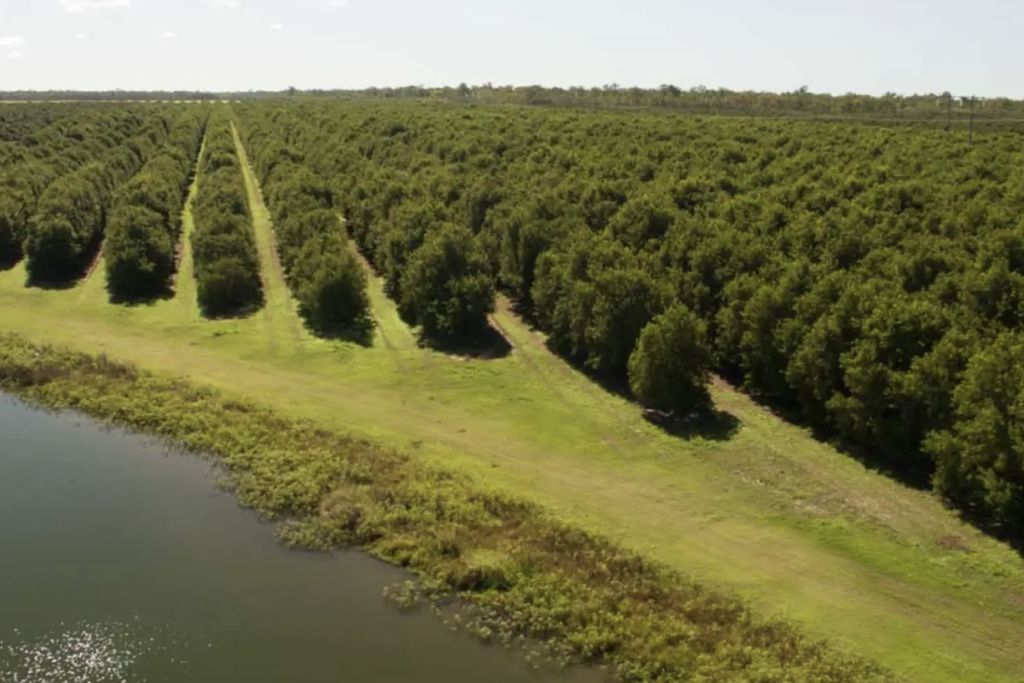Canadian investment giant PSP has struck one of the largest ever deals in Australia’s burgeoning macadamia industry, buying most of the assets of family owned, Bundaberg-based grower and producer Macadamias Australia.
The terms of the deal, concluded last week and approved by the Foreign Investment Review Board, remain confidential. However, it is understood that PSP, through its local agribusiness venture Stahmann Webster, paid more than $100 million for more than 1000 hectares of planted orchards and vacant land, as well as state-of-the-art macadamia cracking, processing and packaging facilities developed by the Steinhardt family.
The network of farms acquired by PSP, the biggest offshore investor in Australian agriculture, are planted with more than 200,000 macadamia trees that produce about 2000 tonnes of nut-in-shell each year.
It extends PSP’s investment in Australian walnuts, almonds and pecans to more than $1 billion, after the firm acquired former ASX-listed irrigated farming and water business, Webster Limited, for $854 million in 2019.
Out of this deal came Stahmann Farms, which is focused on the nut sector.
The acquisition of Macadamias Australia by the Public Sector Pension Investment Board, one of Canada’s largest pension investment managers, is the latest big money corporate play in Australia’s fast-expanding macadamia industry, which has the potential to deliver super profits to investors in the coming years.
Last month, global agricultural investor Nuveen Natural Capital acquired one of the country’s largest macadamia orchards, 106,000 trees planted across 344 hectares at Calavos near Bundaberg, for more than $70 million from the Manera family’s Macadamia Enterprises.
Joining PSP and Nuveen is ASX-listed Rural Funds Group, which planted 1000ha of greenfield macadamia orchards in Queensland last year, after acquiring 5409ha of Maryborough sugarcane farms from MSF Sugar in 2020.
Wave of capital
This is a fifth of a total of 5000ha of macadamia orchards Rural Funds plans to develop in Queensland, as part of a $500 million investment.
Joining these big corporate players are the likes of entrepreneur Dyson Bogg, who has raised about $30 million for his two-year-old start-up M-Nut, which is in the process of converting hundreds of hectares of former sugar cane and banana farms into greenfield macadamia orchards.
This wave of offshore and local institutional capital into the sector has provided an exit strategy for industry pioneers such as Macadamias Australia founders Ron and Marion Steinhardt, who planted their first trees in 2004.
According to its website, Macadamias Australia is “the largest family owned, vertically integrated macadamia business in the world”.
Even though it is selling off its farms, trees and production facilities, the Steinhardt family will remain invested in the macadamia sector through the retained ownership of several business units within the Steinhardt Group.
This includes the Happy Nut retail business that the Steinhardt’s eldest son, Trevor, will own and operate, as well as Macadamias Australia’s tourism business, cafe and Farmfresh Fine Foods vegetable processing facility that their daughter Janelle and her husband Andrew Gerry will own and operate.
All Macadamias Australia employees will be offered roles in the combined business (or the operations to be retained by the Steinhardt family). Contracts with external growers will roll over as part of the transition.
Although macadamia nut prices crashed last year amid a COVID-19-induced glut – falling to about $3 a kilogram for nuts in shell, after peaking at almost $7 in 2020 – investors are confident the price will recover over the coming years given rising global demand for the versatile and healthy snack food, and the development of more productive tree types.
However, investors need to be patient: a macadamia tree takes about three years to produce its first crop, and it is not until about the eighth or ninth year that trees hit peak production, at which time growers can expect to earn super profits.
The Australian Macadamia Society forecasts 8000h of greenfield macadamia orchards to be planted between now and 2025, taking the total to 46,000ha.
A large proportion of this expansion will be driven by the conversion of former sugar cane farms in Bundaberg and Maryborough into new macadamia orchards.
